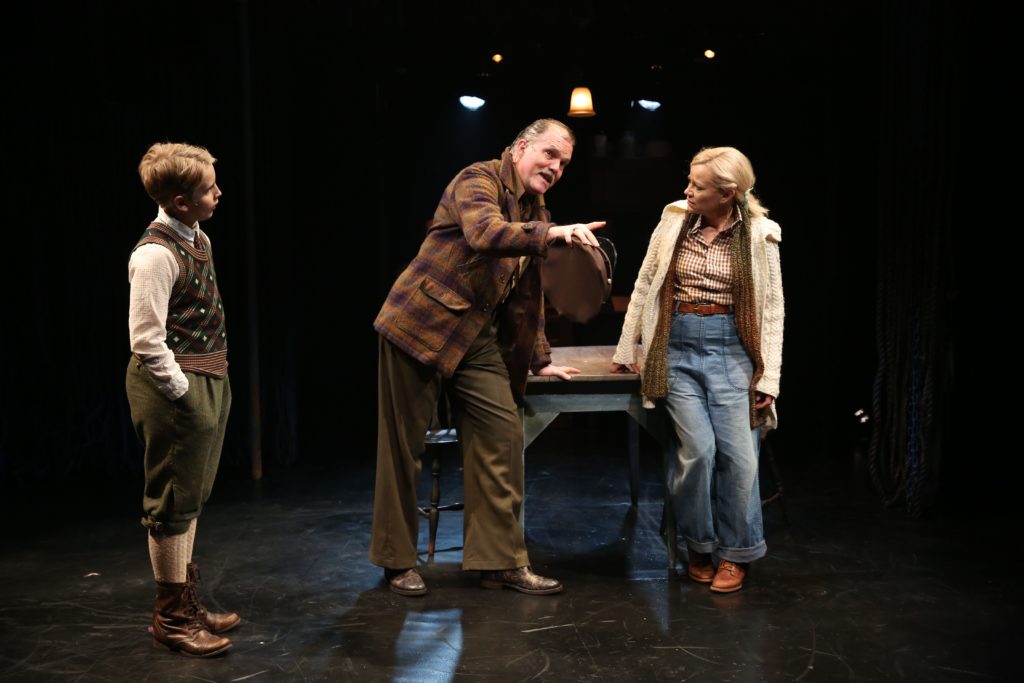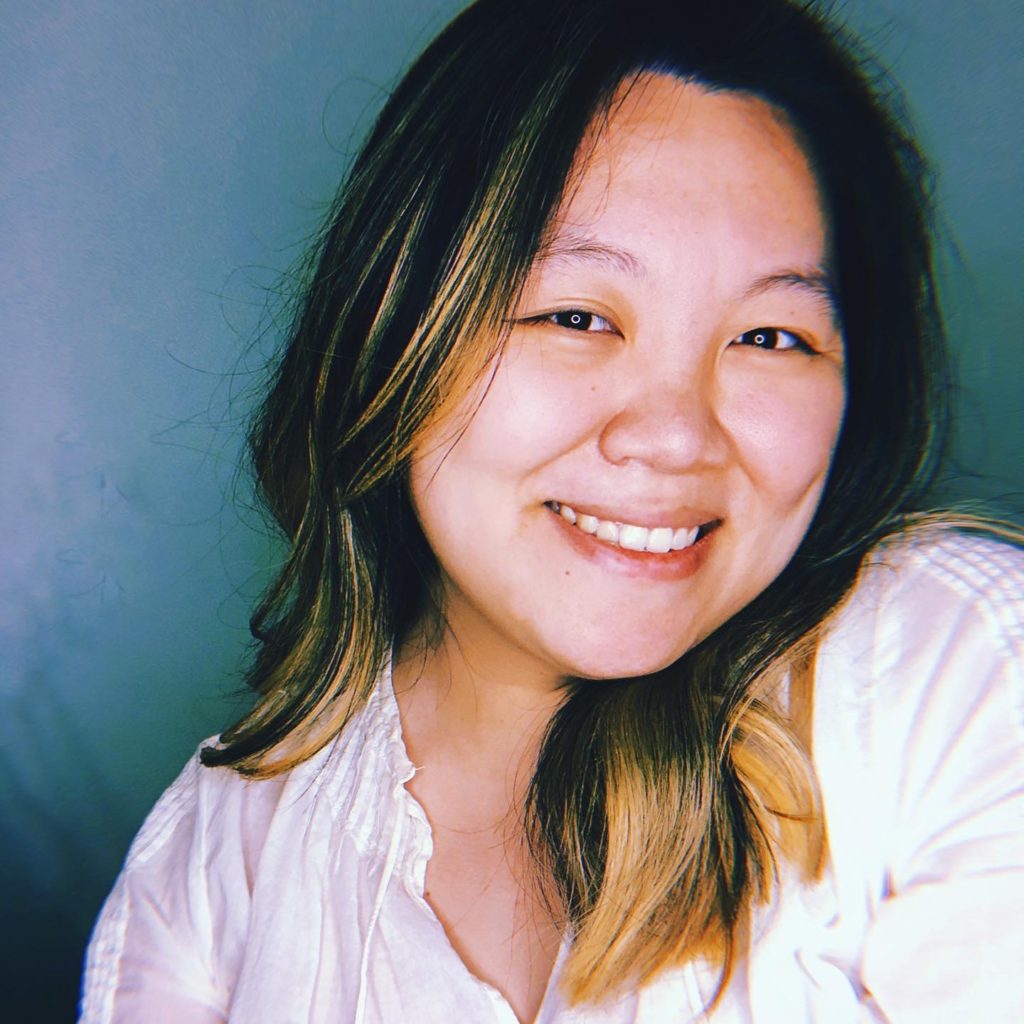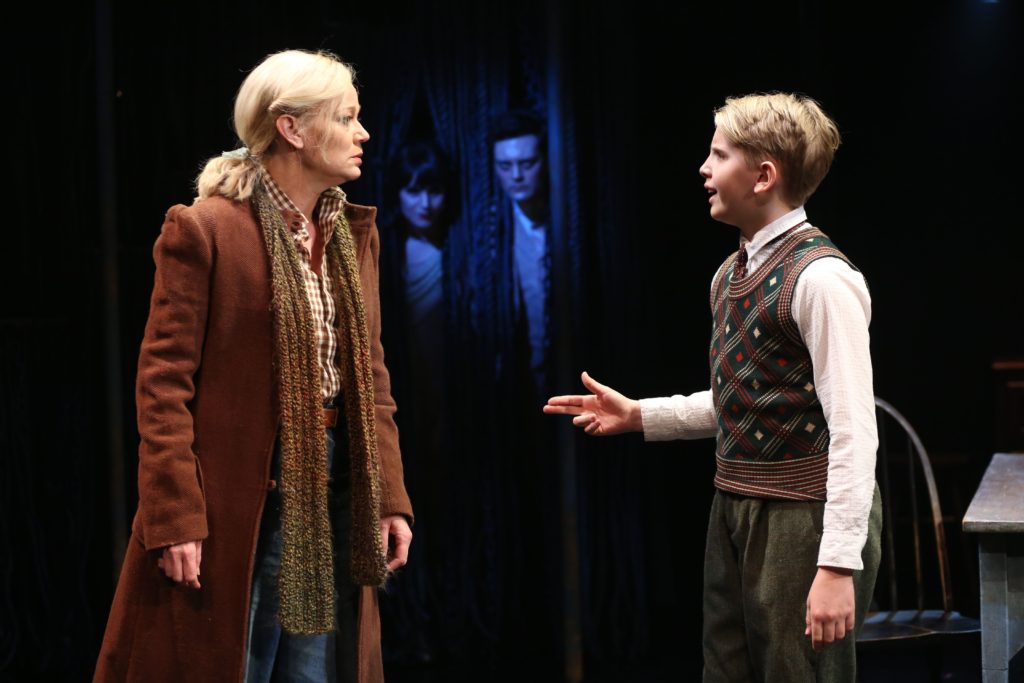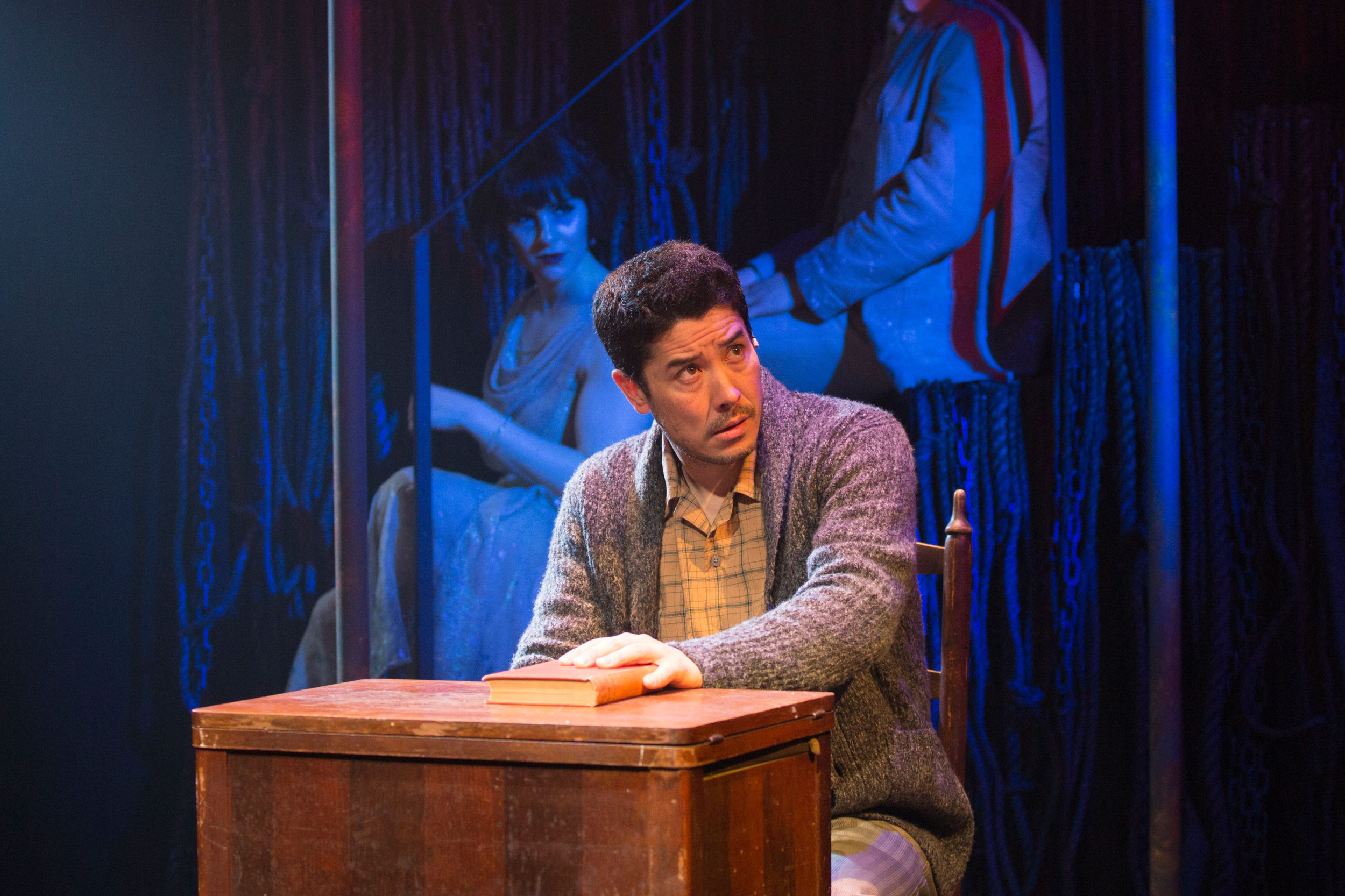In March 2020, The Civilians suspended the Off-Broadway premiere of Duncan Sheik and Kyle Jarrow’s musical, Whisper House, before it could perform its first preview due to the rise of COVID-19 in New York. Nearly two years later, the show is back on its feet at 59E59, set to open in-person on January 20th. In anticipation of Whisper House and The Civilians’ return to the stage, Resident Dramaturg Phoebe Corde sat down with Whisper House dramaturg Annie Jin Wang, to talk creating theater mid-pandemic, dramaturgy, and Whisper House’s path to production.

Phoebe Corde: What were your first steps in approaching the dramaturgy on this show?

Annie Jin Wang: Whisper House has been a unique and very special challenge. This show has had a long life prior to this run, and it can be somewhat unusual for a dramaturg to be invited into the development process this late—much less for a second turn around a production that was basically complete in March 2020. I was very aware that I was stepping onto a team that largely already had a relationship with one another, but I was also glad to have the opportunity to address some dramaturgical questions that perhaps weren’t as present in the previous version of the script.
My first step—which I feel is a reasonable first step for any project—was to engage with the creative team to learn more about the show’s journey so far and what they were hoping to get out of further script development. Then I familiarized myself with and developed my own relationship with the text. From there, Kyle and I had many conversations over the summer and fall pre-production period about the overall structure of the narrative, the function of certain characters or songs, and lingering questions from the previous production that we now had time to answer. In most cases, it was less a matter of majorly rewriting entire sections and more about making small adjustments with certain lines or stage directions that added specificity, clarity, and/or complexity in order to more effectively articulate the story the team is trying to tell.
PC: Without spoiling too much, what are the themes and questions we’re talking about in this show that attract you to it, or that you’re enjoying digging into?
AJW: My purpose was to help this show meet the moment we live in now. Since the first production of Whisper House in 2010, our country’s understanding and attitudes around race, gender, and citizenship—which, consequently, describes a significant part of what my dramaturgical practice centers around—have developed exponentially. It’s natural to want to make sure that the version of the show being presented today furthers the conversation.
I think that as a society, we’ve largely become more aware of the explicit and insidious ways that racism manifests in day-to-day situations. Some of us have even started actively fighting against it. That being said, as an Asian American woman I also feel a deep responsibility to challenge and complexify our understanding of individual and structural racism. I don’t want anyone to walk away from this experience feeling that just because they can recognize racism, they are also not still capable of perpetuating it. We are all entrenched in racist structures that must first be identified and recognized in order to be dismantled. We all have growing to do, and that process can be both painful and beautiful.
I would say that one major emotional theme of the show is that hatred often emerges out of fear, isolation, and regret, and connecting with others while you can is the only way forward. This story works very hard to show Christopher undergoing the process of learning and unlearning racist behaviors from the adults around him while also dealing with his own trauma and grief. Excavating this dynamic with nuance and care was especially important to me.

PC: How do you see your role in the rehearsal room as the dramaturg?
AJW: Production dramaturgy can be so fluid, and my role really does change from project to project depending on the team’s needs. Oftentimes dramaturgs are thought of as librarians or gatekeepers, but when I can, I like to encourage a more expansive vision of what a dramaturg can be–a facilitator of artistic process, a trusted listener, and someone who can empower the other artists in the room to discover and wield their own unique dramaturgical tools. I’m a big proponent of collaborative dramaturgy and this cast and creative team are scary smart, so that part of the process has been particularly joyful for me.
PC: How has this second rehearsal process been affected by the pandemic? Considering this show’s initial intended run was an early casualty of the pandemic, can you tell if that’s changed the vibe in the room?
AJW: This is a great question! Whisper House is my first in-person show since early 2020, as I’m sure is the case for many members of our company. Everyone’s a little more weathered, but also a little wiser; we are all, as Steve said during our first read through, learning how to make theatre again. There was a definite awareness that the stakes were twice as high, but there was also perhaps an even stronger sense of camaraderie and mutual compassion as a result. Everyone recognizes the privilege of having the resources to remount this show and aim to make it even better the second time around.
On that note, I really have to give huge thanks to The Civilians’ Managing Director Margaret Moll and our production’s wonderful COVID Compliance Officer Sarah Boess for their rigorous efforts to keep all of us safe during the rehearsal and tech processes, allowing us to focus on the art. From making sure we tested regularly to setting clear expectations and plans in the event of a breakthrough case, they were very proactive with integrating safety measures into our production process and a huge part of what carried us successfully into performances.

PC: Has the pandemic affected you specifically in your work as a dramaturg?
AJW: I was in the last semester of my MFA program when the pandemic finally became very real for those of us in the US—I won’t drag you too far into my existential spiral, but it took me a very long time to recenter myself to the point where making theatre could be nourishing again. Our community has lost so much, but we also have the opportunity to reform exploitative industry practices and create healthier, more abundant creative processes. Everything that is happening in our world—the social movements, the political turmoil, the reckonings within our field and ourselves—informs how I develop my values as a dramaturg and affirms what I can offer to a creative process in service of these larger goals.
On a personal level, my dramaturgical practice has really shifted towards advocating for new work and living playwrights; I did a fair amount of production dramaturgy pre-pandemic but recently I find myself more often invited to be a collaborator at the generative level. It’s been exciting to challenge myself to grow in that direction, but I am also now so aware of our human limitations. Time and trust are resources I have learned to treasure more readily, so I am trying to be more conscientious about the projects and people with whom I choose to share my gifts. I hope that this has made me a more generous collaborator, as well!
PC: What are you most looking forward to when this show comes to the stage?
AJW: Hearing audience reactions in real time! For me, there is nothing as transcendent and joyful as the sound of humans laughing, crying, gasping, and cheering together in space—safely masked and vaccinated, of course.
(Selfishly, I’m also looking forward to hibernating until spring once we open.)
PC: Is there anything else you want to tell our readers?
AJW: Theatre is a communal experience and storytelling is one of the oldest and most innately human artforms we’ve inherited. It can be healing and liberating for so many, so please continue to find and support the local storytellers in your community!
Annie Jin Wang is a first-generation Chinese-American dramaturg whose body of work investigates constructs of race, gender, and citizenship. Recent collaborators include Fault Line Theatre, Rattlestick Playwrights Theater, Theater Mu, Shotgun Players, Ferocious Lotus Theatre Company, and the Croatian National Theatre. Her writing has been incubated with Fresh Ground Pepper and she is a member of the PlayGround-NY Writers’ Pool. Annie currently serves as the Associate Director for Programming & Communications at PlayCo. MFA: Columbia University; BAs: Wellesley College. wang-annie.com
Whisper House will run at 59E59 until February 6th, 2022. You can learn more about Whisper House here, or click here to purchase tickets.
Extended Play is a project of The Civilians. To learn more about The Civilians and to access exclusive discounts to shows, visit us and join our email list at TheCivilians.org.
Author
-

Phoebe Corde (she/her) is a dramaturg, writer, and illustrator from Westport, Connecticut, specializing in stories of the strange, magical, and otherworldly. She is currently Resident Dramaturg at The Civilians, where she is director of their artistic development group, the R&D Group, and is a member of the creative board of directors at Off-Brand Opera. Her dramaturgical work has been seen on Broadway and Off-Broadway stages, including The Public Theater, Vineyard Theatre, A.R.T., Paper Mill Playhouse, Oregon Shakespeare Festival, Ensemble Studio Theatre, and 59E59.
View all posts








